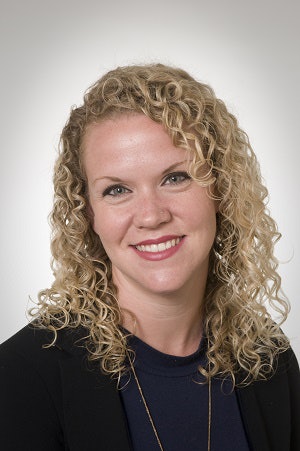Single mothers who earn an associate’s or bachelor’s degree earn more, pay more in taxes and require little if any public assistance according to a new study.
A study from the Institute for Women’s Policy Research (IWPR) provides state-level analysis on the economic and social returns for single mothers who are able to access higher education and earn their degrees.
Singles mothers are more likely to live in poverty than other women, but the opportunity to enroll in a college or university and earn a degree can completely change that. However, they face numerous obstacles on the road to degree completion, including tuition, food insecurity and stable childcare. Ninety-two percent of single mothers do not graduate on time.
 Lindsey Reichlin Cruse
Lindsey Reichlin CruseThe study, “Investing in Single Mothers’ Higher Education: National and State Estimates of the Costs and Benefits of Single Mothers’ Educational Attainment to Individuals, Families, and Society,” not only shows the benefit to the mothers and their families, but to state and national economies. Fact sheets for all 50 states plus the District of Columbia are available online at https://iwpr.org/tools-data/investing-in-single-moms-by-state/.
Almost 10% of all U.S. undergraduates are single mothers. States with the highest percentages are Arizona, New Mexico, Texas, Oklahoma and Mississippi. IWPR utilized data from several sources, including the 2015-16 National Postsecondary Student Aid Survey and Integrated Postsecondary Education Data System.
The data shows that single mothers who have an associate’s degree earn $256,000 more over their lifetimes than they would have with only a high school diploma. Lifetime earnings are calculated for the age span 35–64. With a bachelor’s degree, the difference is $625,000 on average.
“We were able to provide state-level data for not only how many single mothers are enrolled in college, but also the benefits to them and to state economies of single mothers’ degree attainment,” said Lindsey Reichlin Cruse, study director at IWPR. “We feel this type of research is really effective for making the case for greater investment in single mothers’ college success because it demonstrates a clear economic case that there is money to be made for families and for society more broadly when we help these single mothers graduate successfully.”
Reichlin Cruse said some of the key data points are the return on the investment in higher education. For every dollar spent on education, single mothers get back $12.32 for an associate degree and $7.77 for a bachelor’s degree.
“Our country is having important conversations about college affordability, and in many ways college is unaffordable for students around the U.S.,” she said. “When single mothers invest in college, even though they could be spending less if we were able to make college more affordable, they still see an impressive return on their investment when they earn a college education.”
When it comes to speaking with policy makers at the state level and the federal level, the study’s examination of the return to society is also quite important, said Reichlin Cruse. Single mothers who earn some college education or a degree save the U.S. nearly $20 billion in public assistance spending on things such as food stamps. The study estimates that single mothers currently enrolled who earn bachelor’s degrees will pay approximately $6.6 billion more in taxes over their work lives than they would with just a high school diploma.
“They contribute to stronger economies in a number of different ways in addition to contributing to our workforce needs,” said Reichlin Cruse. “We need a workforce that is highly skilled. A college education is increasingly required to fill in-demand jobs. Educating single mothers is a mechanism for strengthening the labor force for the future.”
 Dr. Michael Alfano
Dr. Michael Alfano“It’s an underdeveloped segment of the workforce,” said Dr. Michael P. Alfano, dean of the Isabelle Farrington College of Education at Sacred Heart University. “Investing in programs that support single mothers is actually a very good economic policy because it has the potential to inject qualified professionals into the workforce.”
The study also noted that Latinx, Native American and African-American single mothers are least likely to hold college degrees. Investing in higher education for single mothers promotes racial equity. Alfano said the research shows that postsecondary education opportunities are critical to breaking cycles of poverty.
Seeing to it that these single mothers enroll and graduate in a timely manner requires investment from state and federal governments and institutions. Not only do they need services such as financial aid, child care, emergency funds and food pantries, but evidence suggests careful case management improves outcomes. This involves individualized support helping students navigate obstacles and challenges in the classroom as well as facilitating access to resources on campus or in the community.
Alfano said sharing reports such as this with policy makers is critical, adding that many people close to completing their postsecondary education may stop short due to life circumstances.
“Child care resources—from ‘drop-in’ centers to full-blown daycare centers which are accessible at the actual postsecondary education institution—can be the difference from completing a life-changing credential or not,” he said.
Reichlin Cruse agrees.
“These data can communicate the importance of investing in this population and supporting their success in a range of ways,” she said. “Connecting the dots for policy makers so they see both the short- and long-term implications is important for securing those dollars up front.
“In addition to the economic benefits that we quantify in our study, research shows that there is a range of benefits of higher education, including multi-generational benefits that really make it clear that investing in single mothers’ success is an imperative that our society must meet.”


















